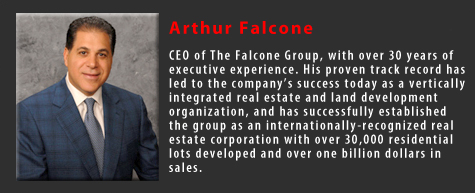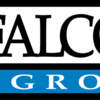
Art Falcone, Tony Avila Reboot Distressed Deal Fund as Encore Housing Opportunity
Art Falcone, Tony Avila Reboot Distressed Deal Fund as Encore Housing Opportunity http://arthurfalcone.com - http://artfalcone.com - http://falconegroup.info Two of last decade's most vaunted deal makers in the home building space, Art Falcone and Tony Avila, are very much back, and they're together again for the first time with former PIMCO managing director Bill Powers and a $400 million private equity distressed residential investment vehicle called Encore Housing Opportunity Fund. Falcone and Avila previously hatched a $500 million vulture fund in 2008 to be a feeder for Falcone's Americrest Homes, a unit of Falcone's extensive Falcon Group of real estate ventures. That earlier incarnation may have been too early. Encore, it seems, has its timing down and, in Bill Powers, has a major league financial player on the team. "We've got eight deals done, putting $60 million of capital to work so far, four deals in Florida and four in California," says Avila, who it must be said more often than not has some involvement in nearly every home builder deal under serious discussion. Avila says the capacity of the fund is about $400 million and is designed for residential transactions across a gamut of statuses, ranging from unentitled lots and partially developed tracts to entitled lots and partially built neighborhoods. "We have the ability to partner with builders, with developers, with financial players, or even build out a community with our own home building operators," Avila says. While the first batch of deals have been in the epicenter distressed markets of Florida and California, he says Encore is looking hard at opportunities in Nevada, Arizona, Texas, the greater D.C. metro area, and the Carolinas. The lineup of personnel in Encore is an assemblage of key players from Avila's and Falcone's respective pasts, with a number of players whose prior incarnations were in Avila's group at JMP Securities until 2008 and other key executives hailing from Falcone's various real estate enterprises, including Transeastern Homes, which sold to Technical Olympic USA (TOUSA) in 2005, at the top of the market. What Avila and Falcone have typified, especially through the latter stages of the downturn, is a resilient focus on opportunism even as the end demand for new residential construction lies in the clutches of uncertainty, a kind of limbo. Lennar has its Rialto, Toll Brothers has its Gibraltar, and now Beazer Homes has gotten into the distressed residential real estate game with its plans to invest in the purchase of homes it can get for a song, fix up, put up for rent, and someday sell. Encore, like some of the other well-heeled funds joined at the hip with home building operators and land acquisition expertise, has the advantage of starting with a balance sheet free and clear of paying too much for land. What it buys, it can insist on paying a low number because its decisions don't need vetting by a land committee, and Encore can pull the trigger as quickly as it wants to if the deal pencils to its underwriting hurdle rates. "Our investment models can range from a one-year earn-out to six years," Avila says, which means the firm can try for some of the near-term opportunity with partially built neighborhoods even as it banks on a longer-term, low-pulse, "tepid" recovery scenario. Home building operators of strong balance sheets and not so are rabid in their obsession over the need for topline growth right now. They're each in their different business model way capitulating to the fact that trying to make a healthy living in an environment that seems to be housing's rock bottom, featuring a choppy, 300,000-or-so new-home sales per year is going to be tough. What must be particularly irksome for some of the more established companies--especially the private ones who've struggled mightily to keep their lender syndicates somewhat contented even as the valuations on their owned properties have gone mushy and their ability to pump in more equity has drained their rainy day reserves bone-dry--are "the resurrected." Companies that either took their medicine early on to get rid of "legacy land issues" (a euphemism for financially strangling building lot assets that have no chance of getting turned over, and instead simply mount up carrying costs as well as debt service), or ones who simply folded up their tent, are beginning to reconstitute with capital that is urgently looking for yield. What's still missing, and is likely to be for some time in the broad strokes that is the national market, is home buyer urgency. Low prices, low interest rates, extra added features, and lower cost-of-ownership promises thanks to higher efficiency have not quite won the day as far as driving buyer urgency into the market. Unfortunately, it's likely going to take fear--fear of missing something later by not paying for it now, fear of a worse outcome than one can imagine as prices still soften--to draw people back into a sustainable universe of demand for new homes. Until then, some familiar faces are working the deal landscape under the name of Encore. |
|























